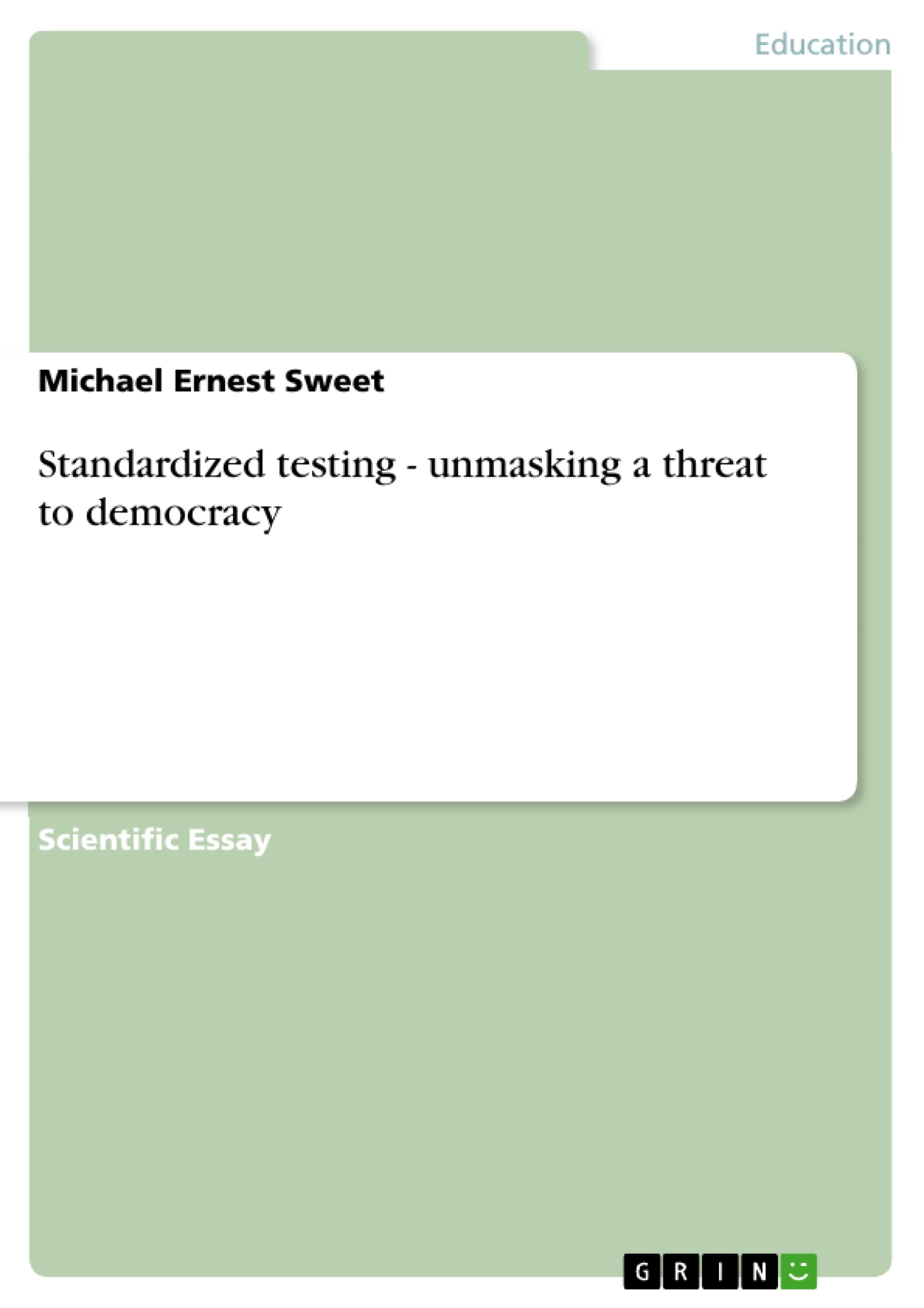The purpose of this paper is to deconstruct the debate surrounding educational reforms concerned with standardized testing. The theoretical framework I use to analyze this debate is based on theories of democracy and capitalism and unmask the real motives of the various stakeholders involved in the development and implementation of standards reform; that they are not concerned primarily with student learning. Additionally, I demonstrate that the deleterious effects of this shift in the assessment paradigm, and schooling in general are, unfortunately, of dyer consequence to our democratic state. The paper is a concise overview of standardized testing, its history and the dangers in its continued implementation.
Inhaltsverzeichnis (Table of Contents)
- Standardized Testing: Unmasking the Real Debate
- What is Education for Democracy?
- What is Standardized Testing?
- Why is Capitalism Interested in Schooling?
- Why Use Standardized Tests?
Zielsetzung und Themenschwerpunkte (Objectives and Key Themes)
This paper aims to analyze the debate surrounding standardized testing in education, focusing on the underlying motivations of various stakeholders and the potential consequences for democracy.
- The relationship between education and democracy.
- The role of standardized testing in education.
- The influence of capitalism on education.
- The potential negative consequences of standardized testing for democracy.
- The debate between corporate elites and educators on the aims of education.
Zusammenfassung der Kapitel (Chapter Summaries)
The first chapter explores the concept of education for democracy, contrasting it with the objectives of standardized testing. It examines the role of critical thinking and the potential for undermining democracy if education focuses solely on standardized assessment.
The second chapter delves into the capitalist interests in education. It outlines how the post-World War I industrial economy shifted the focus of schooling toward vocational training and the subsequent emergence of standardized testing as a tool for social efficiency and social mobility.
The third chapter examines the advantages of standardized testing for capitalism, highlighting its role in promoting social efficiency and social mobility while also acting as a means of control over the educational system.
Schlüsselwörter (Keywords)
Key terms and concepts explored in this paper include standardized testing, democracy, capitalism, social efficiency, social mobility, educational reform, and the debate surrounding the aims of education.
Frequently Asked Questions
What is the central argument against standardized testing in this paper?
The paper argues that standardized testing is driven more by capitalist interests and social efficiency than by student learning, posing a threat to democracy.
How does capitalism influence educational reform?
Capitalism has shifted the focus of schooling toward vocational training and social mobility, using standardized tests as tools for control and efficiency.
What is the relationship between education and democracy?
True education for democracy should foster critical thinking, whereas standardized testing may undermine democratic values by focusing on narrow assessments.
When did the focus on standardized testing emerge?
The shift began after World War I, as the industrial economy demanded more structured vocational training and social efficiency in schools.
What are the "deleterious effects" mentioned in the abstract?
The effects include the erosion of critical democratic engagement and the reduction of schooling to a mechanism for capitalist social sorting.
- Quote paper
- Graduate Student Michael Ernest Sweet (Author), 2006, Standardized testing - unmasking a threat to democracy, Munich, GRIN Verlag, https://www.grin.com/document/77060



